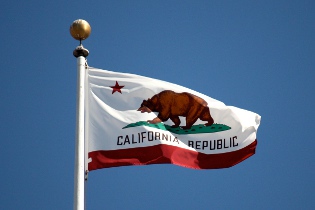
After slugging it out for the past seven years regarding the regulation of online poker in the state of California, three state Indian tribes have offered a compromise that may move forward current legislation.
In a letter obtained by Pechanga.net, the leaders of those three tribes – Bo Mazzetti of the Rincon Band of Luisefio Indians, Gene Whitehouse of the United Auburn Indian Community and Robert Smith of the Pala Band of Mission Indians – address the two representatives who have pushed forward legislation this year in California. The letter, addressed to Representatives Reggie Jones-Sawyer and Mike Gatto, states that the three tribal entities have come to an agreement on a compromise that might bring together the different factions over online poker. “We believe that these issues are essential to finding a meaningful consensus on internet poker in California,” the letter states.
As to the potential companies that could take part in a proposed California online poker industry, the three tribal chairman suggest that horse racing tracks be allowed the same opportunity to participate in the California online poker bonanza. “We support the approach of AB 167 (Jones-Sawyer’s proposed bill) in permitting horse racing associations to be eligible for internet poker operator licenses on the same terms as eligible tribes or card rooms,” the three chairman state.
Mazzetti, Whitehouse and Smith also conclude that some of the language in AB 167 as it regards ‘bad actors’ is more palatable than Gatto’s AB 9 in that it looks at individuals rather than companies as a whole. “We suggest an approach that looks specifically at personal participation in unauthorized gaming,” their letter suggests. “Under this approach, those persons with control over a licensed operator, service provider or marketing affiliate could not include any person who has personally participated in unauthorized gaming.”
On this particular subject, the three tribal leaders elaborate a bit further. “This approach strikes a balance between the state’s need to ensure that persons who willfully (defy/defied) gaming laws not be permitted to jeopardize the integrity of internet poker in California while recognizing that control of an entity may change over time that resolves regulatory concerns,” the letter reads. It also suggests that potential licensees – whether they are operators or individuals – have two years of experience with gaming activities and are “in good standing” would be acceptable background for joining in California’s proposed online poker industry.
Another potential roadblock was addressed by the trio of tribal leaders. As to the usage of “assets developed through unauthorized internet gaming,” the leaders admitted that they had not come to a full agreement on the subject but “encourage continued conversation on this important issue.” Finally, the tribal heads agree with Gatto’s AB 9 that a license should be for a 10-year period rather than the four-year term that is suggested with Jones-Sawyer’s AB 167.
The letter demonstrates that some of the tribes that would be eligible to participate in a proposed California online poker market are attempting to make some moves forward on the online poker debate. The introduction of the ‘bad actor’ language of previous bills has been a subject that has divided not only the tribes but also the card rooms and racetracks. In the tribal case, the three authors of the letter to Jones-Sawyer and Gatto suggest that they, although for a ‘bad actor’ clause, are willing to go deeper and look at companies that have changed ownership and may be suitable for licensing but aren’t sure of their intellectual content. The Morongo and San Manuel Indian tribes are against any ‘bad actor’ language (and, not surprisingly, have deals signed with the company causing the ‘bad actor’ debate…more on that in a moment), while the Pechanga and Aqua Caliente tribes are for the ‘bad actor’ clause.
The ‘bad actor’ clause at the center of the debate is about PokerStars’ potential entry into a California online poker industry. Under the beliefs of Mazzetti, Whitehouse and Smith, Amaya Gaming‘s purchase of PokerStars last year eradicates the “unlawful” component from the company (as everyone remembers from 2011, PokerStars’ founder and then-CEO, Isai Scheinberg, was indicted and remains at large from federal authorities; he was also alleged to still hold sway over the company after he was allegedly forced out in 2012 in an out-of-court settlement with the U. S. government regarding PokerStars’ “Black Friday” actions) as those involved from 2006-2011 are no longer with PokerStars. Whether Amaya could use the PokerStars software, mailing lists and other “intellectual property” is still up in the air.
Whether the overture from the three Indian tribes will be enough to break the logjam in California over online poker regulation is hard to determine. There has been long animosities built up between the tribes, the card rooms and the racetracks on this subject for nearly a decade and, although they seem to be thawing a bit, any further bumps in the road could upset the delicate balance. To this point, neither Jones-Sawyer nor Gatto have responded to the letter, but there are efforts to move a combined Jones-Sawyer/Gatto merged bill forward.


















